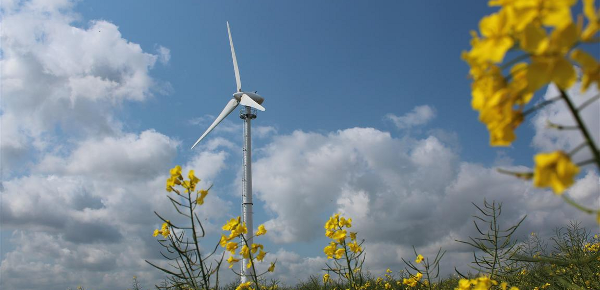New legal framework to encourage the installation of small wind turbines in Greece is just about ready to be forwarded for a public consultation procedure as a committee assembled by the energy ministry to work on the framework’s establishment delivered its results to the ministry last week.
A ministerial decision will need to be signed in order to activate a development program concerning small wind turbines with capacities of up to 50 KW. Provisions for the use of such microgeneration facilities had been included in a law ratified back in 2013 but the effort never really got off the ground.
According to energypress sources, the committee’s findings include provisions for the installation of two types of small wind turbines, one concerning small systems with capacities of between 2 and 3 KW, the other for more powerful systems with capacities of up to 50 KW.
The smaller systems may be installed on or near buildings and used for self-production and net metering purposes, along the lines of provisions made available for household photovoltaic facilities.
Rights for the installation of larger-category systems will need to be gained through tenders, in accordance with regulations established for bigger wind energy parks with capacities of over 6 MW.
Tenders for the larger category of small wind turbines will be staged locally, not nationally, to facilitate certain areas whose networks require electricity generation boosts.
Auctions determining tariff levels at which electricity production will be sold by small-scale producers are planned. Pricing limits will be set by the energy ministry, not the committee formed to promote the use of small wind turbines.
The government is not expected to offer elevated tariffs for small-scale production as this technology, when applied on a grander scale, can generate electricity at a lower cost.
Small wind turbines are expected to play a complementary role facilitating net metering and network capacity inadequacies.
Net metering enables electricity consumers who generate their own power from an eligible on-site facility and deliver it to local distribution facilities to offset the electric energy provided by the utility during an applicable billing period.
The special committee’s study covers aspects such as small wind turbine technical standards that need to be met as well as regional network characteristics required for the installation of such systems.
Investments in the sector have been flat in recent years.





